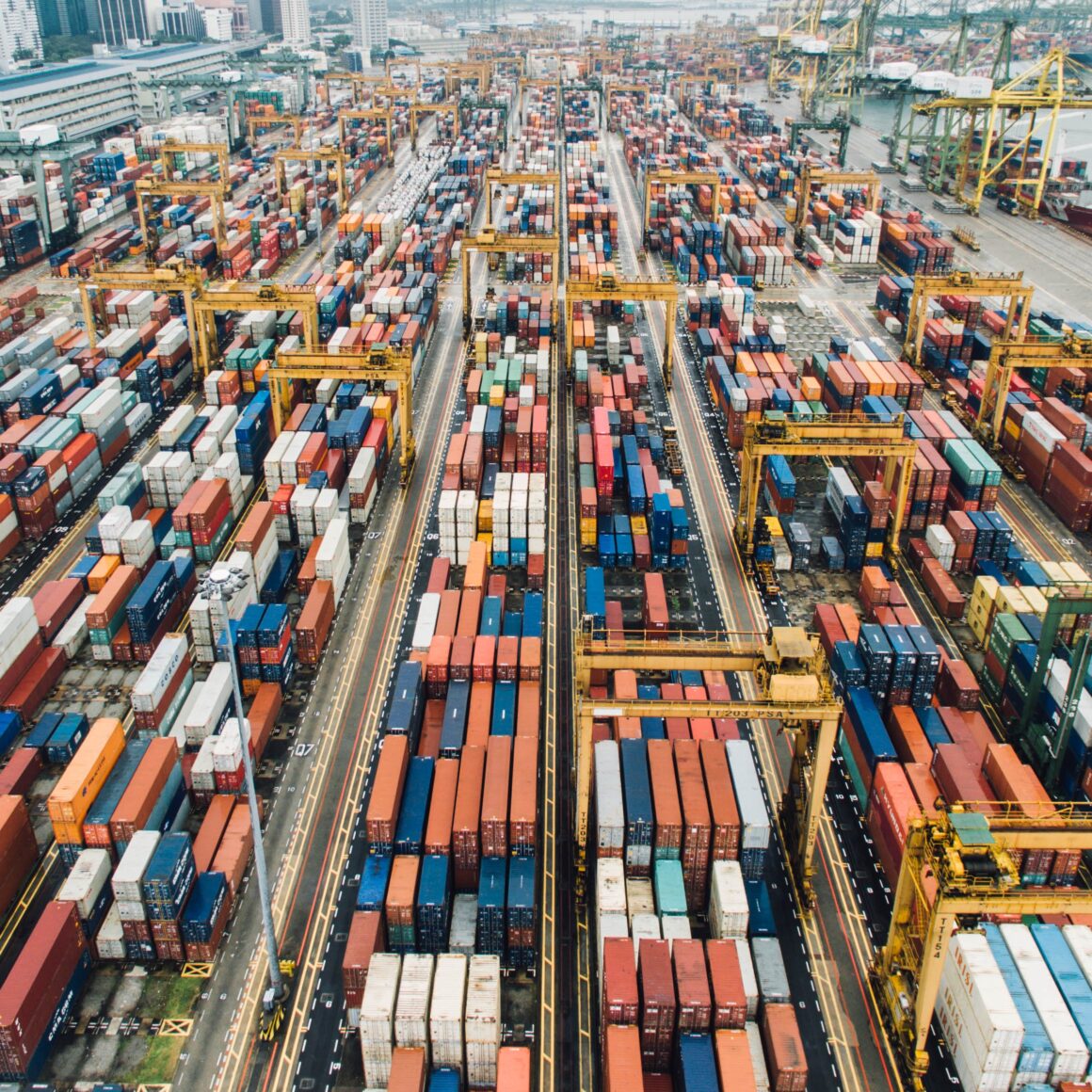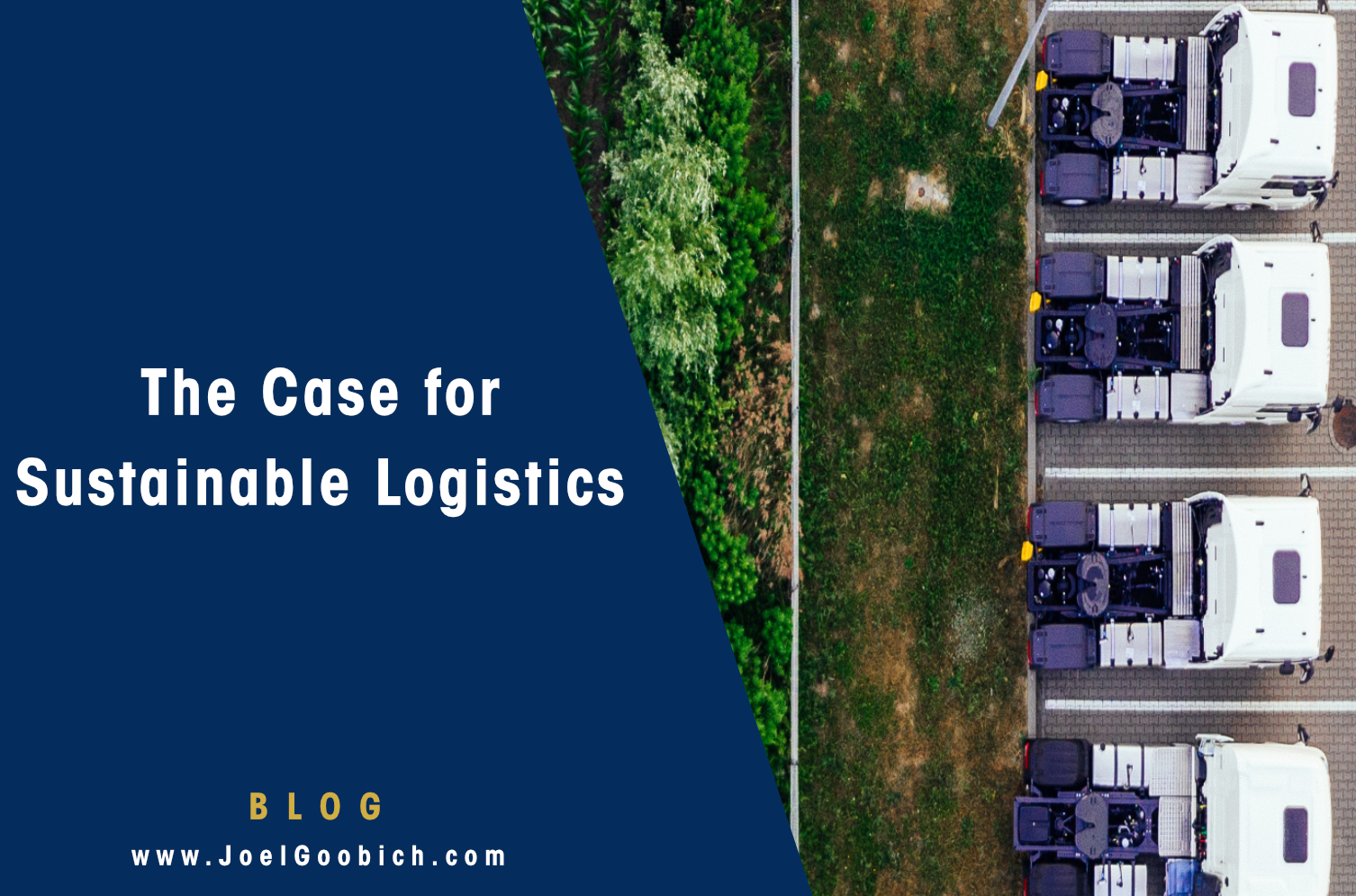The Case for Sustainable Logistics
Sustainable logistics refers to the practice of managing and organizing supply chain processes in a way that minimizes negative environmental impacts and maximizes the use of resources while still meeting the needs of businesses and consumers. This can involve using environmentally friendly transportation methods, reducing waste and emissions, and using efficient and effective methods for managing the movement of goods and materials. Sustainable logistics aims to lower the ecological footprint of its tasks, such as CO2 emissions, noise pollution, and accidents. In this sense, logistics suppliers must look for a balance between financial growth, environmental care, and the health of society.
This adoption of and improvements in green technologies such as solar energy, EVs, advanced battery innovations, and other decarbonized transportation methods will lead the changes in logistics in the coming decade and beyond.
The advantages and disadvantages of sustainable logistics
Sustainable logistics has several potential advantages, including reduced environmental impacts, improved efficiency and effectiveness, and cost savings. Some of the specific benefits of sustainable logistics include:
-Reduced greenhouse gas emissions and other environmental pollutants, which can help to protect the environment and combat climate change
-Improved energy efficiency, which can lead to cost savings and reduced reliance on non-renewable resources
-Increased use of sustainable transportation methods, such as rail and shipping, which can be more efficient and less polluting than other modes of transportation
-Reduced waste and increased recycling, which can help to conserve natural resources and reduce the amount of waste sent to landfills
-Improved customer satisfaction and loyalty, as consumers increasingly demand environmentally friendly products and services
-Enhanced brand reputation and competitive advantage, as sustainable practices can help to differentiate a business from its competitors and improve its public image
There are also some potential disadvantages of sustainable logistics, including the potential for higher upfront costs and the challenges of coordinating and implementing sustainable practices across a complex global supply chain. Additionally, some businesses may be resistant to change or may lack the knowledge and expertise to implement sustainable practices.
Overall, the advantages of sustainable logistics far outweigh the potential disadvantages, and the practice of sustainable logistics can help businesses to reduce their environmental impact, save money, and improve their reputation and competitiveness.

Why is sustainability important in a global supply chain?
Sustainability is important in a global supply chain for several reasons. First, the practice of sustainable logistics can help reduce the negative environmental impacts of transporting goods and materials around the world. This includes reducing greenhouse gas emissions, minimizing waste and pollution, and conserving natural resources.
Second, sustainable logistics can help improve the efficiency and effectiveness of supply chain operations. By using more efficient transportation methods and reducing waste and inefficiencies, businesses can save money and improve their bottom line. This can also lead to better customer satisfaction and loyalty, as consumers increasingly demand environmentally friendly products and services.
Third, sustainability is important for the long-term health and stability of the global economy. As the world population continues to grow and consume more resources, we must find ways to sustainably manage our use of natural resources. This includes reducing our reliance on non-renewable resources and finding more sustainable alternatives. By implementing sustainable practices in the global supply chain, businesses and governments can help ensure that the global economy can continue to grow and prosper in the future.
Why has the acceptance of sustainability in logistics been slow to be put into practice?
There are a few reasons why the acceptance of sustainability in logistics has been slow to be put into practice. One reason is that many businesses have been focused on maximizing short-term profits, and implementing sustainable practices can sometimes involve upfront costs that may not have immediate financial returns. Additionally, there may be challenges in terms of coordinating and implementing sustainable practices across a global supply chain, which can involve many different stakeholders and complex systems.
Another reason for the slow acceptance of sustainability in logistics is that some businesses may not fully understand the benefits of sustainable practices, or may not realize the long-term impact of their actions on the environment and society. In some cases, businesses may be resistant to change or may lack the knowledge or expertise to implement sustainable practices in their operations.
Finally, in some cases, there may be regulatory or policy barriers that prevent businesses from implementing sustainable practices in their logistics operations. For example, there may be limited incentives or support from governments for sustainable logistics, or there may be a lack of clear guidelines or standards for measuring and reporting sustainable practices. Overcoming these challenges will require a concerted effort from businesses, governments, and other stakeholders to raise awareness and support for sustainable logistics.
What can governments do to support sustainability in logistics?
There are several steps that governments can take to support sustainability in logistics. One of the most important is to provide incentives and support for businesses that implement sustainable practices in their operations. This can include tax breaks or other financial incentives for companies that adopt sustainable logistics practices, or support for research and development of new technologies and approaches to sustainability.
Another key step that governments can take is to develop and implement policies and regulations that support sustainable logistics. This can include setting clear goals and targets for reducing greenhouse gas emissions and other environmental impacts, as well as establishing standards and guidelines for measuring and reporting on sustainability in the supply chain. Governments can also work with industry stakeholders to develop and promote best practices for sustainable logistics, and provide training and education to help businesses implement these practices.
Additionally, governments can play a role in promoting collaboration and coordination among different stakeholders in the supply chain, including businesses, civil society organizations, and other governments. This can help to create a more holistic and integrated approach to sustainable logistics, and ensure that all parties are working together towards common goals and objectives.
Overall, governments have a critical role to play in supporting sustainability in logistics and can help to create the conditions and incentives that will enable businesses to adopt more sustainable practices in their operations.

Will consumers be willing to pay more for the extra cost of sustainable logistics?
It is difficult to say for certain whether consumers will be willing to pay more for the extra cost of sustainable logistics. In general, consumers are becoming more aware of the environmental and social impacts of the products and services they purchase, and many are willing to pay a premium for goods and services that are produced sustainably. However, this will likely vary depending on the specific product or service, as well as the individual consumer’s priorities and values.
One factor that may influence consumers’ willingness to pay more for sustainable logistics is the availability of information and transparency about the sustainability of the products they are purchasing. If consumers can easily access information about the environmental and social impacts of the products they buy, they may be more likely to make purchasing decisions based on these factors. Additionally, if businesses communicate the benefits of sustainable practices to consumers, this may also help to increase their willingness to pay a premium for sustainable products and services.
Overall, it is likely that there will be a range of factors that influence consumers’ willingness to pay more for sustainable logistics, and it will be important for businesses to carefully consider these factors when developing and marketing their products and services.
The case for sustainable logistics is overall positive
The case for sustainable logistics is strong and compelling. Implementing sustainable practices in the global supply chain can help to reduce the negative environmental impacts of transporting goods and materials, improve the efficiency and effectiveness of supply chain operations, and support the long-term health and stability of the global economy. Additionally, sustainable logistics can provide a range of benefits for businesses, including cost savings, improved customer satisfaction, and enhanced brand reputation. While there may be challenges in implementing sustainable practices, these can be overcome through a coordinated effort from businesses, governments, and other stakeholders. In short, sustainable logistics is an essential component of a more sustainable and prosperous future.






